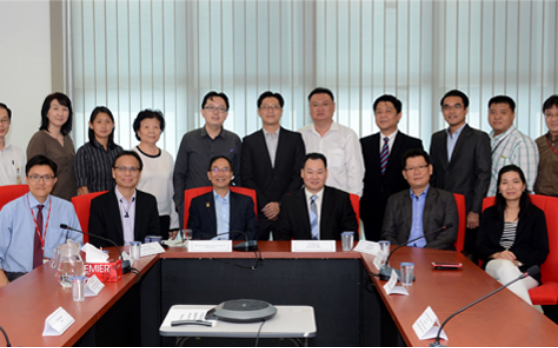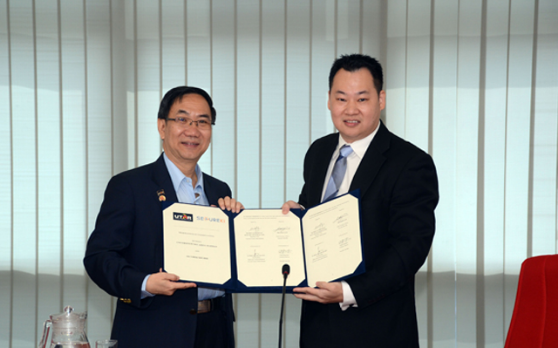July 2016: MoU with Secureki

Both parties hoped that this MoU can promote collaboration in the context of cyber security which includes aspects such as R&D activities, sharing of ideas and facilities, enhancing research and curriculum development, providing industrial attachments for students and staff, and holding seminars, conferences, and workshops that are relevant to the industry.
“I hope that this MoU will be an active one which UTAR will work together with SecureKi to ensure our students are not only trained in traditional theoretical studies but also taught the real life applications in the industry to cope with challenges brought about by technological advances,” remarked Prof Chuah.
“I am thankful for such a collaboration with UTAR and I hope that through this MoU we can collaborate in key areas such as cyber security-related R&D activities; the exchange of ideas from both parties; and the facilitation of industry studies for the purpose of enhancing learning experiences, professional and future development, and also the industrial placements of UTAR students; while producing local cyber security talent with innovative and global mind-sets,” said Low.
The Centre for Cyber Security (CCS) aims to attract significant external research grants and encourage multidisciplinary collaboration, while demonstrating national leadership and gaining international recognition for excellence in the area of cyber security. The main objectives of CCS are to promote R&D among its members, commercialise research output, encourage technology transfer, and provide seminars and training in cyber security to enhance the competitiveness of local industries in the global market. Its research focuses on areas such as biometric security, information security, implementation and systems security, information privacy, and network coding for security.
CCS Chairperson Dr Yap Wun She said, “We hope to secure more grants so that we can focus on reducing gaps between theory and practical application in the industry, while boosting the commercialisation of products.”



